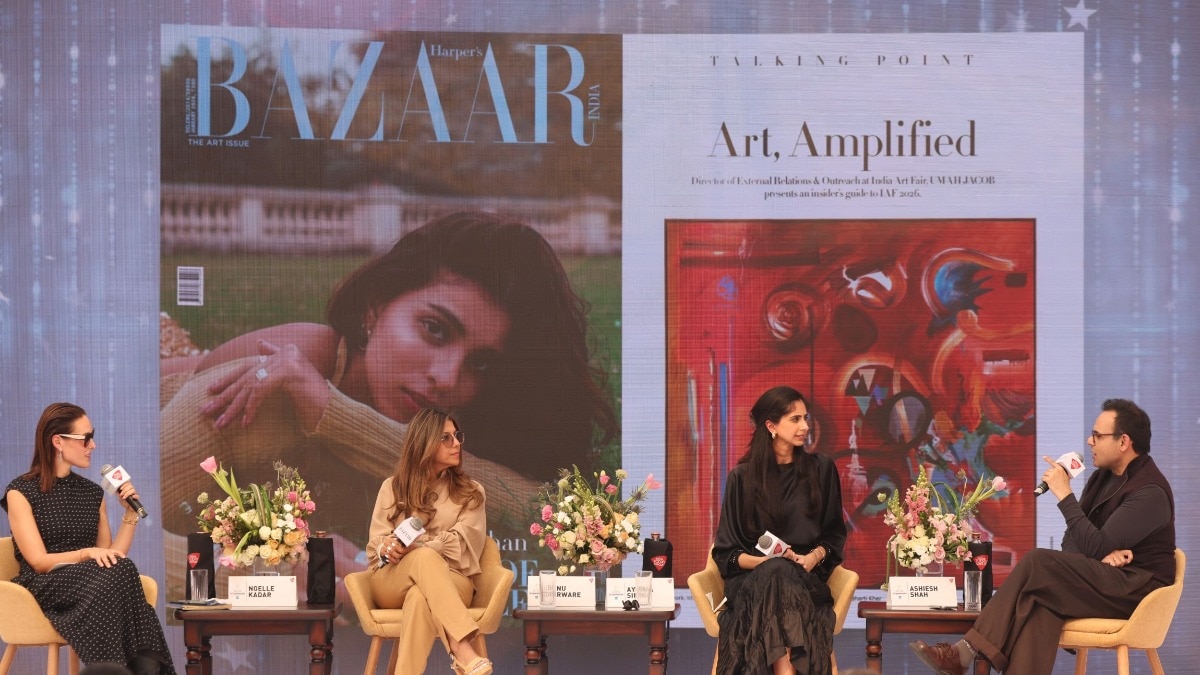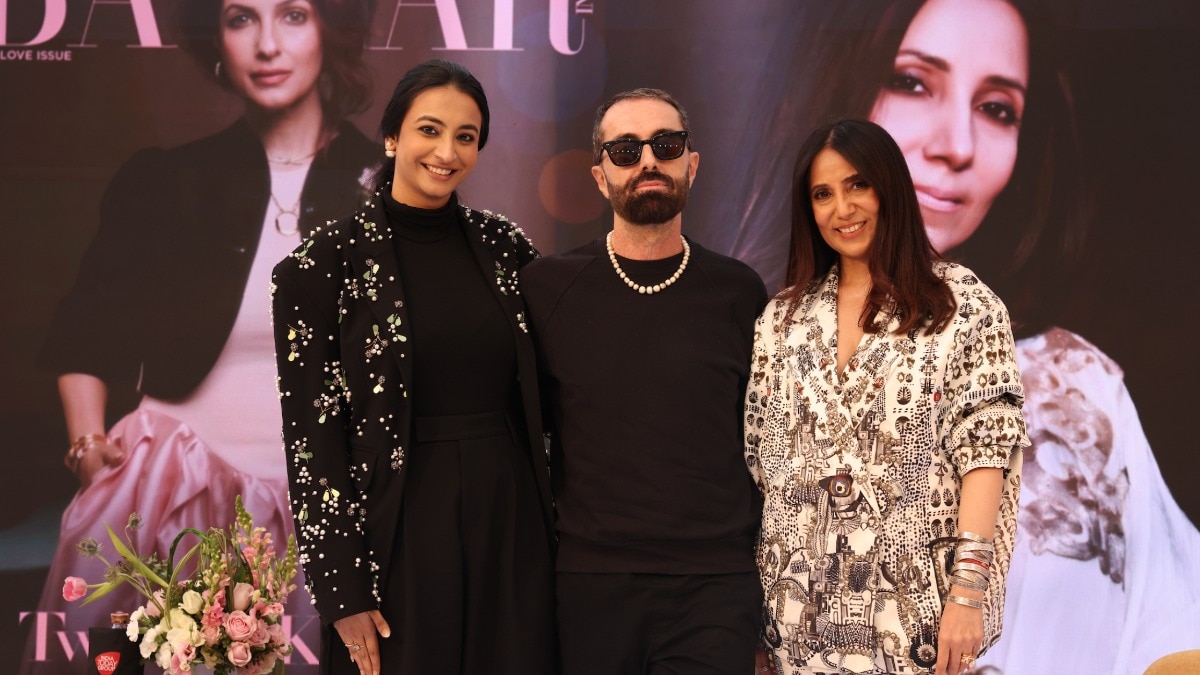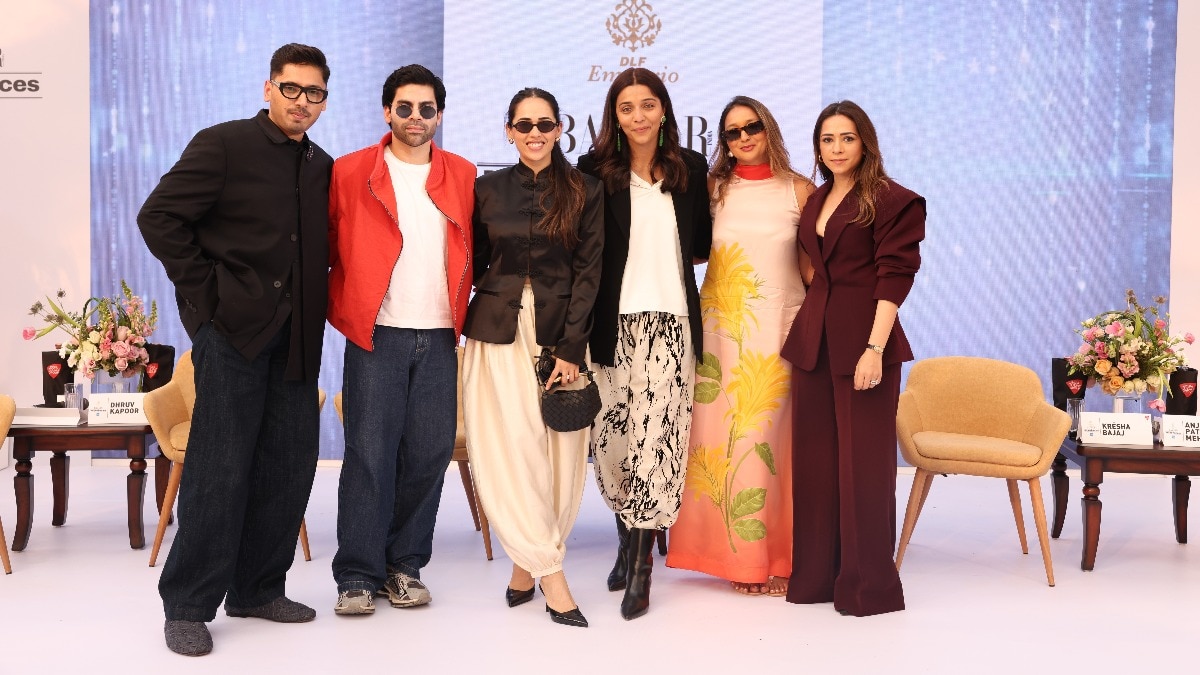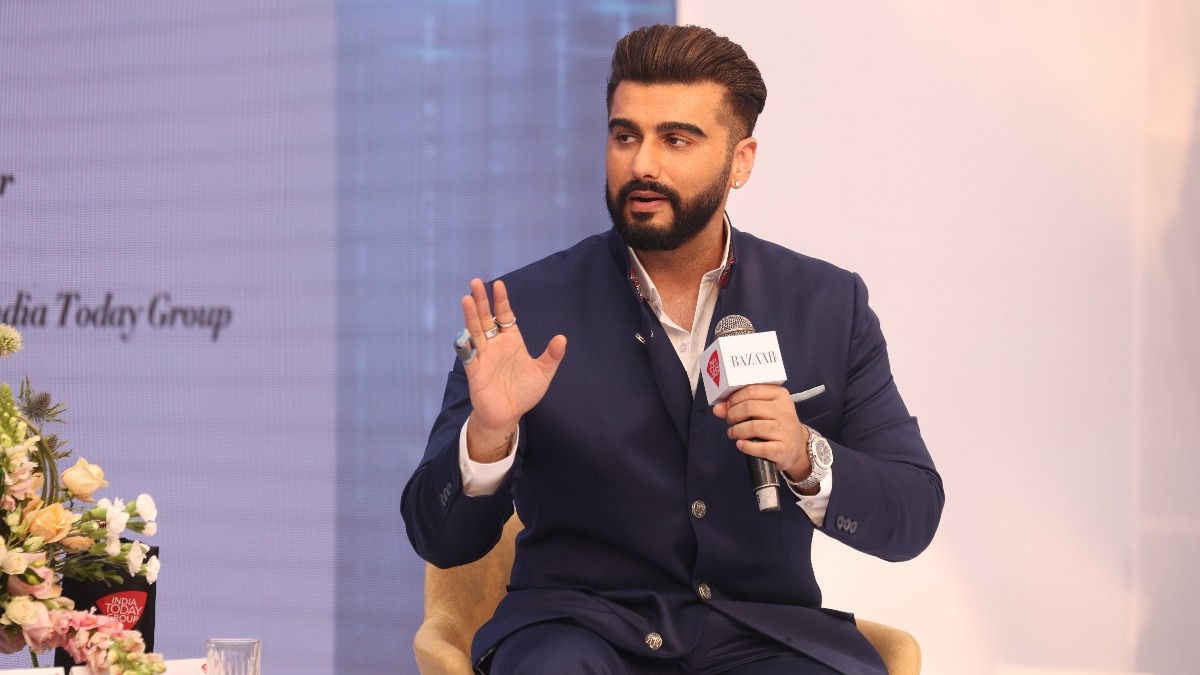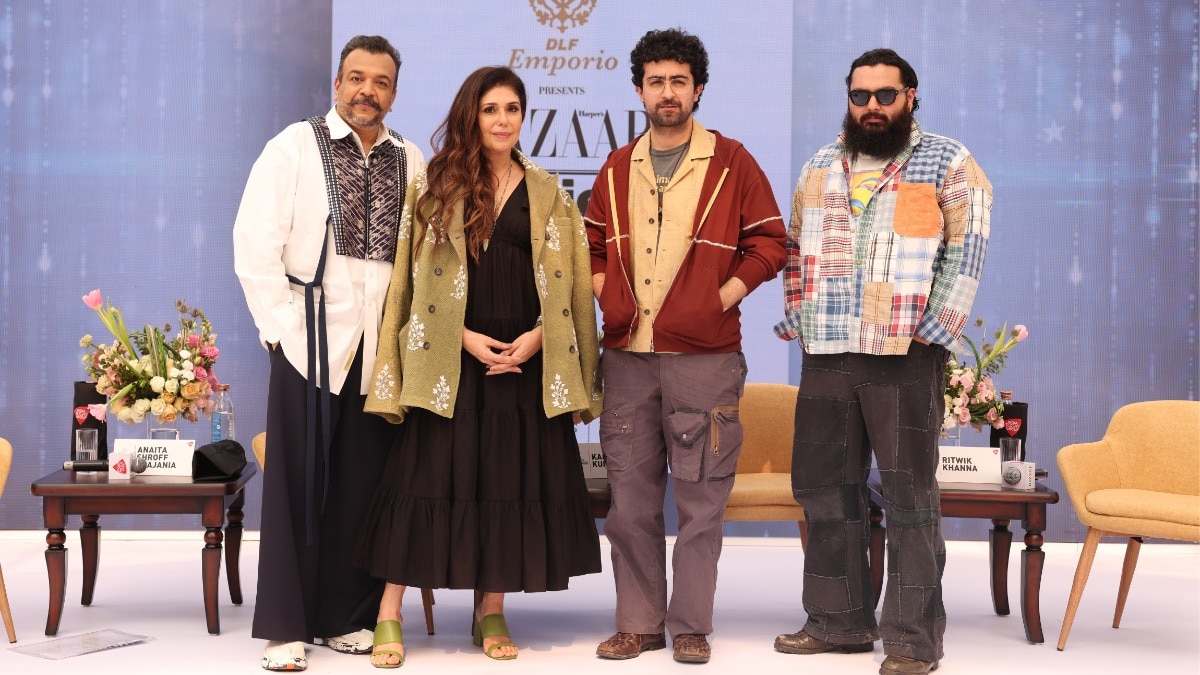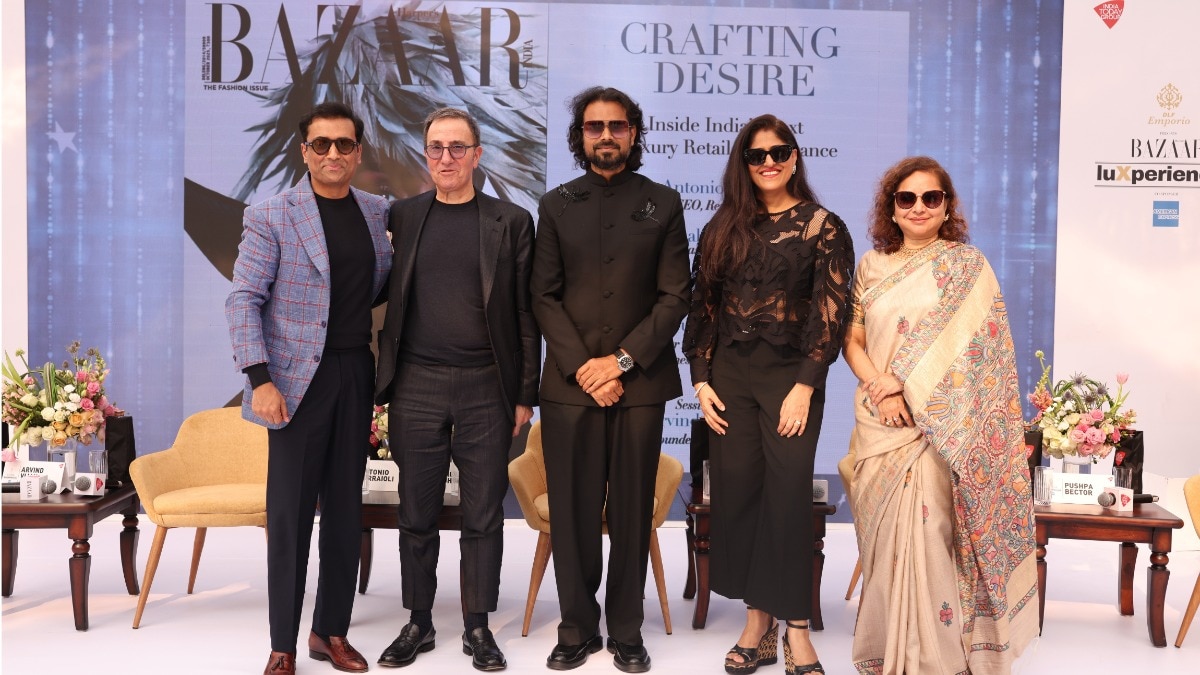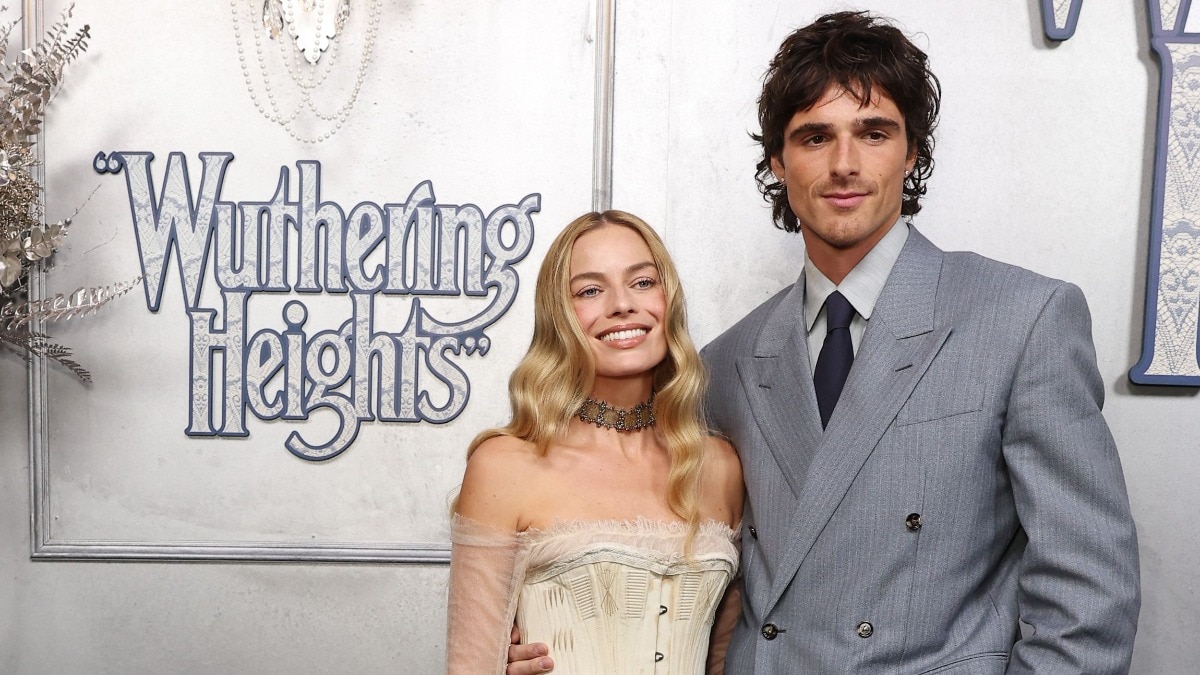Dior makeup's creative and image director talks about the changing landscape of the industry
Bazaar India speaks to Dior's Peter Philips on his beauty philosophy, how he selects runway make-up looks, trends born out of social media, and more.


March 30, 2023 was a date that the fashion world won't be forgetting anytime soon all thanks to Dior. The iconic fashion label presented the Dior Fall collection in India for the very first time. Showcasing the latest womenswear at Mumbai’s historic Gateway of India, Maria Grazia Chiuri and the Maison presented an ensemble that celebrated and paid a fitting tribute to Indian savoir faire. And a man who played an instrumental role in its success was Peter Philips, the creative and image director of Christian Dior Makeup.
Bazaar India spoke to Philips ahead of the show to know more about his thoughts on beauty trends being born on social media, make-up being a powerful tool of expression, women embracing their imperfections. Read on.

Harper’s Bazaar: The House of Dior is at the forefront when it comes to dictating global trends—in both fashion and beauty. Tell us how you determine runway make-up looks.
Peter Philips: Every collection that I work on—be it campaigns or runway shows, I am at the service of Maria Grazia Chiuri’s vision (creative director of Christian Dior). I, along with the hairstylist, set designer, and the people who take care of the music, are there to fulfill her vision...to ensure that the catwalk show is a memorable one. And the inspiration comes from Maria herself, because her research is very strong and she always has a beautiful moodboard. On the other hand, when I plan my make-up collections, I like to think outside the ‘fashion box’. We don’t just care about women who want to be fashionable, but all women who want to look and feel beautiful...it’s a much broader spectrum. I consider a lot of other elements, such as the archives, what’s happening around the world (in the local or regional markets), the feedback I get from people manning the Dior beauty counters, and the editorial work I do...it is a totally different ball game.

HB: You have been a part of the beauty industry for decades...How has the industry evolved over the years?
PP: That makes me sound so old! [Laughs] The beauty industry’s evolution has been a huge revelation. Especially the transformation that we have seen in the last decade or so, which has been mainly due to social media. Social media has changed everything for everybody—the democratisation of fashion, the democratisation of beauty, the fact that there is so much information available, and that anybody can become an expert by just looking at their device. And these platforms have beauty communities that keep us all on our toes—we have to be very alert.
HB: What are your thoughts on beauty trends being born on social media today?
PP: It is because of the accessibility that social media offers. I feel this has given the beauty industry the drive to do even better, because everything you do is assessed and criticised by a very objective audience. In the old days, trends were dictated by a niche group of brands and editors...and people would follow it, because that was the only guideline they had.
HB: And now, as you said, anyone can be an expert...
PP: During my earlier interviews, many of the questions were centred around insecurities about beauty. Editors and journalists would ask for tips for everything—foundation, lipstick application, eyeliner, mascara, or how to cover-up something. And in the last seven or eight years, I have hardly ever been asked for tips, because the information is already out there. If someone has a question, they can just look it up on Google. And that’s a huge step forward, because now people are a lot less intimidated by make-up. And this has also resulted in a lot of research to create better quality products, because of the critical eye of the consumer today.

HB: What’s your personal beauty philosophy?
PP: There are a few basic rules that have remained the same over the years. I have been working for fashion houses for almost 20 years now, and my motto has been to work for beauty. Not every woman wants to be fashionable, not every woman is aware of the latest runway trends, or has the privilege, desire, or interest in fashion... But every woman wants to be beautiful—and that’s who I create looks for. I also believe one should not become a slave to beauty—beauty should not stress you out. Beauty should work for you.
HB: What, according to you, makes make-up such a powerful tool of expression?
PP: It’s temporary, so you can experiment with it—if something goes wrong, you can just wipe it off and start afresh. Also, it’s evolving constantly, and it’s not that expensive. Everyone, in a way, can afford something in beauty. You can have fun with it because it can help you transform.
HB: You had once said in an interview that being a make-up artist is a very intimate job, because you see people at their most vulnerable. Have women become more confident over time and embraced their imperfections?
PP: I think that’s the first time someone has asked me this question. And yes, things have changed. Women and men have become more confident, because today they have access to so much more information. I come from a fashion background, and when I began working in the industry, it was the era of the top models like Naomi Campbell, Claudia Schiffer, among others. So when women saw photographs from fashion and beauty campaigns, they idealised that aesthetic. It was an intimidating period, and it reflected on women in general. And then there was a period where we were overwhelmed with over retouched images, and most people didn’t know that those images were retouched. Suddenly, there were advertisements with poreless and hairless skin, leaving people feeling insecure. But social media allowed people to raise awareness—that none of it is real...it’s a filter! And this made real women realise that they can look fabulous without having ‘perfect’ features. Also, diversity is key, because at the end of the day, what we bring forward gives women confidence—the confidence to be themselves and express themselves.
HB: Dior has had a long-standing relationship with India, and this collection celebrates the crafts and artisans of the country. Has India ever inspired you to create make-up looks?
PP: Absolutely! I come from Belgium, which is very dark and grey. And India is known for the most amazing colour combinations, flavours, scents, fantasies, and fairy tales. I have been to India multiple times over the last 20 years, and it has been kind of overwhelming to soak it all in, but it is also very inspiring. If you look at the art, paintings, fabrics, jewellery...there is beauty everywhere. It is magnificent...a feast for the eyes. And that’s very inspiring.
This article first appeared in Harper's Bazaar India in May 2023.



